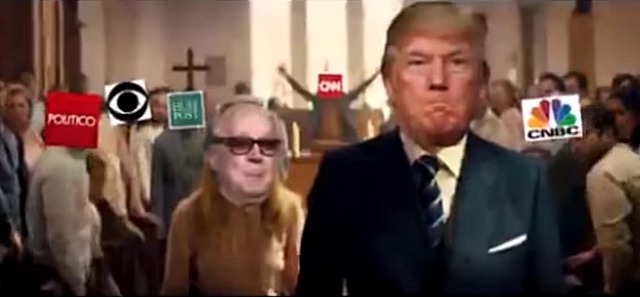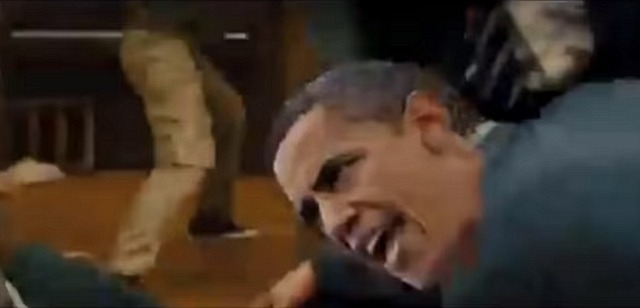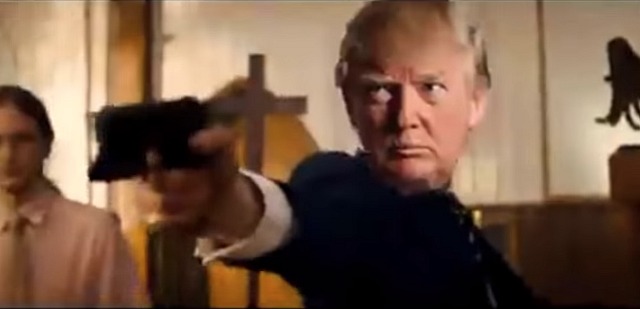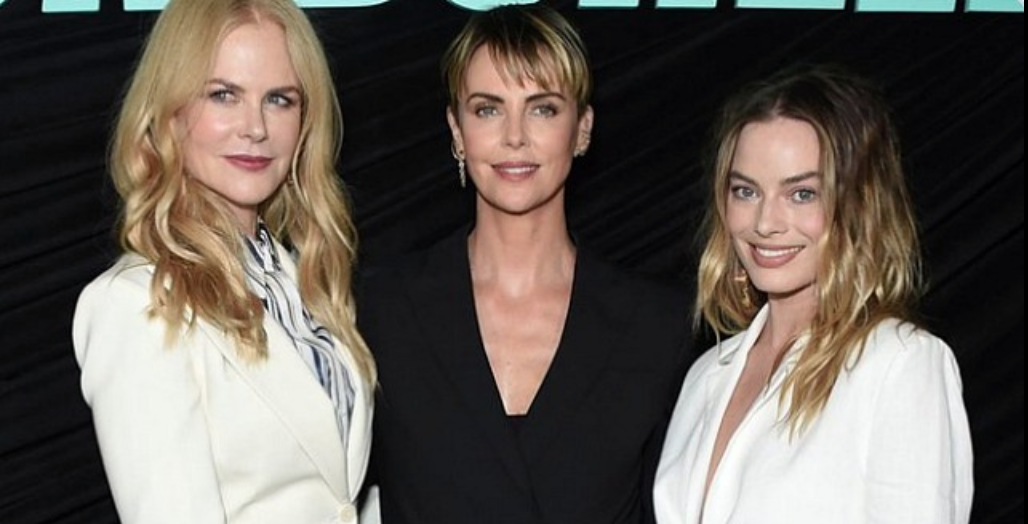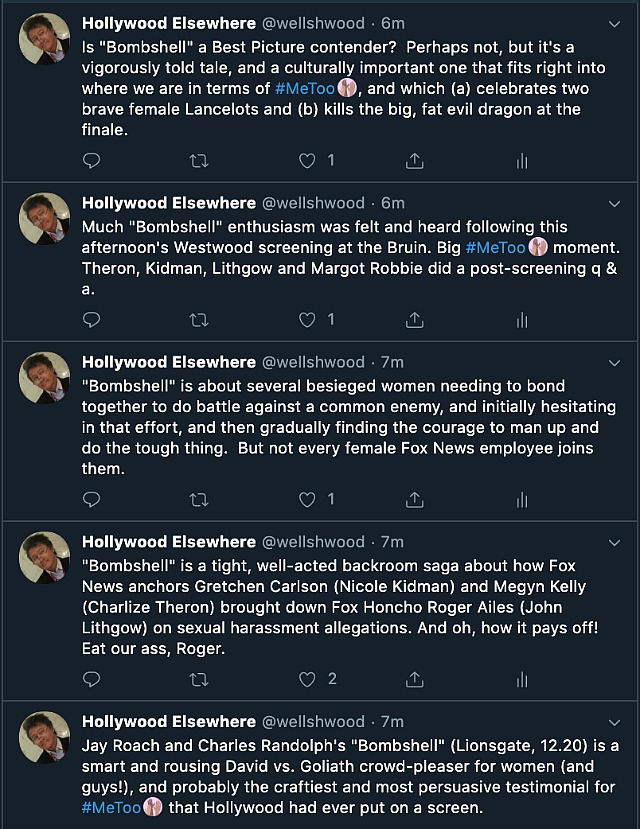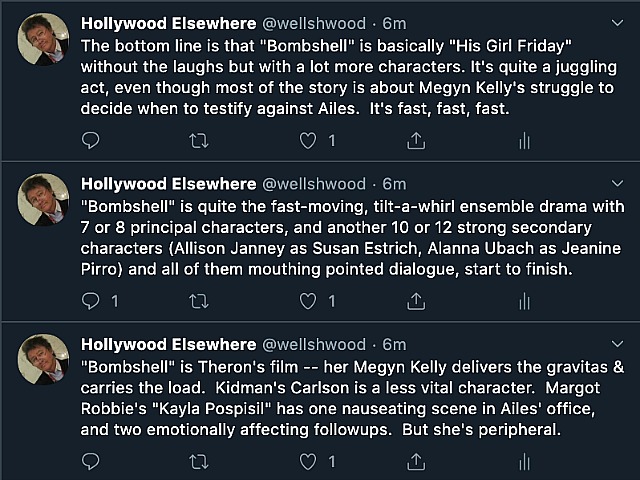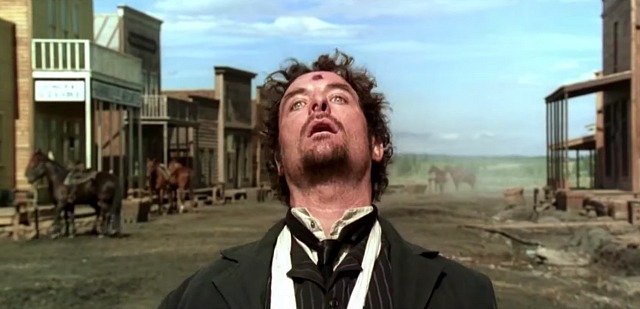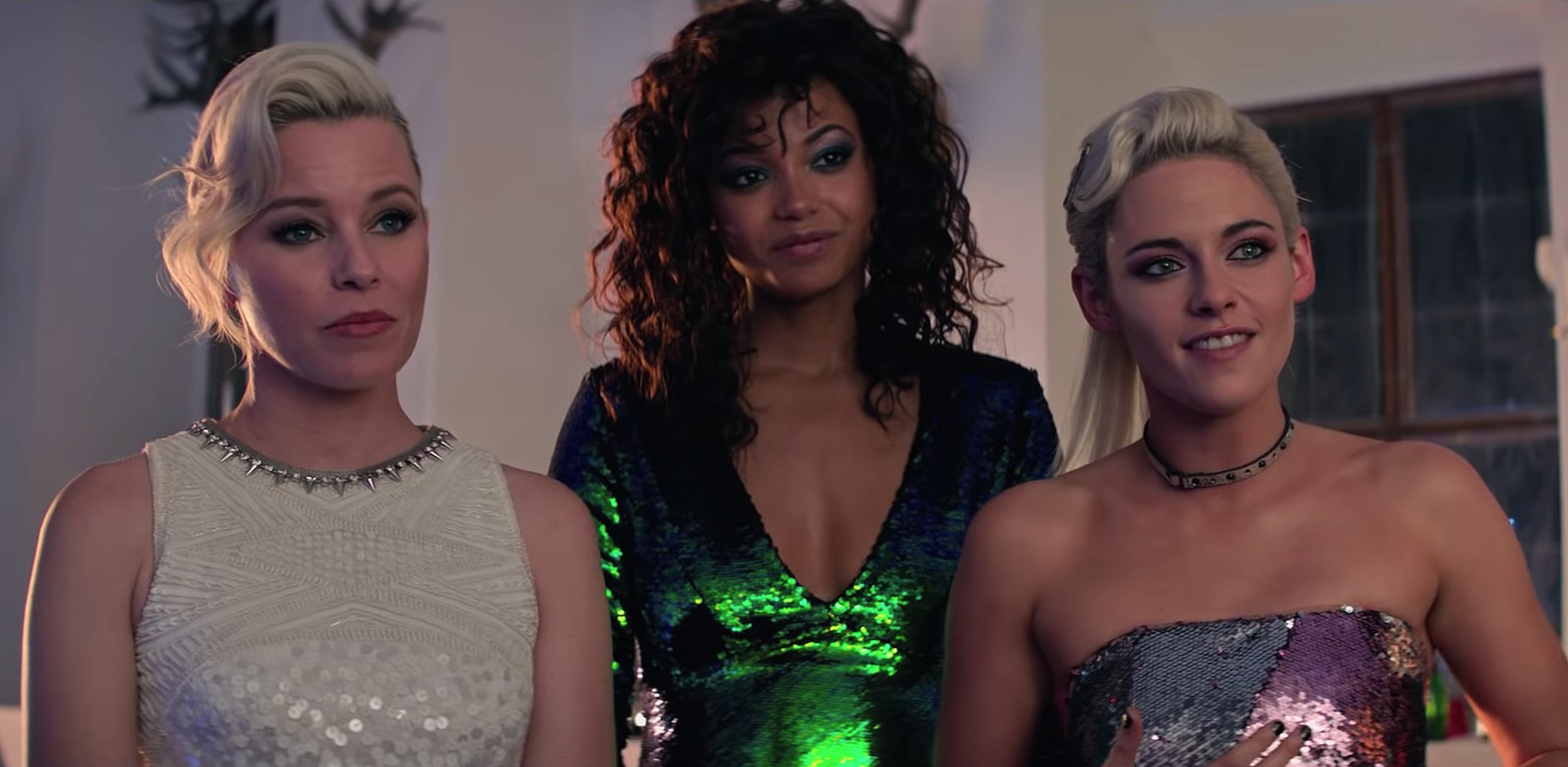I’ve only just seen the ultra-violent, pro-Trump, anti-media and anti-liberal video that was assembled by a person (or persons) who attended a gathering thrown by a loony right organization, American Priority, and shown last weekend at the Trump National Doral Miami as part of a conference of Trump supporters, titled AMPFest19.
The video, which has a degraded, third- or fourth-generation digital texture, is a rightwing slaughter fantasy, rancid and hateful and brimming over with rage. However unfortunate, it’s yet another, fully consistent expression of the sentiments of the media-and-liberal-hating hinterland Trump faithful, a small number of whom, of course, have been behind racially-motivated shootings.
Borrowed from an actual church massacre scene from Matthew Vaughn‘s Kingsmen: The Secret Service, it shows a crudely digitized Donald Trump shooting, bashing and stabbing various news media reps as well as Hillary Clinton, former President Obama, Bernie Sanders (whose white hair is lit on fire), Sen. Mitt Romney, Morning Joe co-host Mika Brzezinski, Rosie O’Donnell and Rep. Maxine Waters.
White House press secretary Stephanie Grisham tweeted today that while President Trump has not seen the video, “based upon everything he has heard, he strongly condemns” it. An American Priority statement on its website says that “it has come to our attention that an unauthorized video was shown in a side room at #AMPFest19…the video was not approved, seen or sanctioned by the AMPFest19 organizers.”
